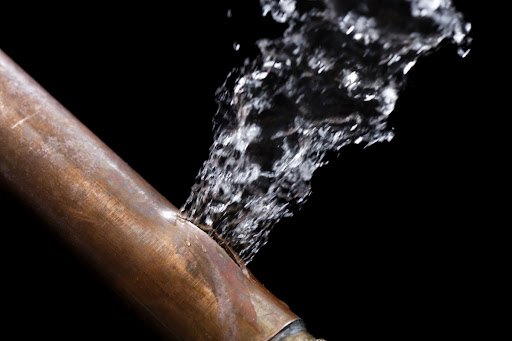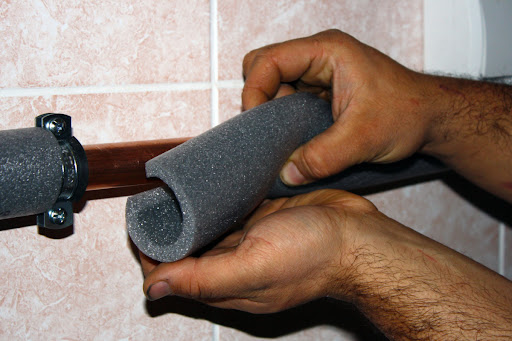
How to Prevent Pipes From Freezing
When winter arrives, many of us become preoccupied with our own sense of comfort. We huddle beneath blankets, heat up some hot chocolate, and put on our coziest sweaters. Although it’s vital to stay warm and comfy throughout the colder months of the year, you shouldn’t forget that your plumbing system also deserves some attention.
If you neglect your plumbing needs, you can potentially risk your pipes freezing and bursting. Unfortunately, burst pipes can result in costly water damage to your home if they aren’t addressed in a timely manner.
Fortunately, learning how to prevent pipes from freezing is quick and easy! Some of the tips we’ll go over may require you to visit your local home improvement store, but most won’t require much equipment — if any.
Without wasting any more time, let’s go on and discuss some of the best tips to prevent frozen pipes this winter.

Double-Check Your Insulation
There are many tips to prevent frozen pipes, but ensuring your water pipes are well-insulated is probably the most important. You’ll want to start by inspecting the pipes along the exterior walls or those located in unheated areas (such as attics and crawl spaces). These pipes are the most susceptible to freezing, as they’re the most likely to be exposed to the cold air outside your home.
Pipe insulation is crucial to preventing freezing, so if you notice that your pipes are poorly insulated, it’s time to make a change. You can usually find insulation, such as “pipe sleeves,†at a home improvement store.

Be Mindful of Your Thermostat
Don’t overlook your thermostat’s setting when learning how to prevent pipes from freezing. You might be tempted to lower your thermostat at night in an effort to save money on your heating bills. However, you should try to keep your thermostat at a consistent temperature day in and day out to avoid any mishaps with your pipes.
Outdoor temperatures can drop considerably during the night, leading to unexpected freezing. Of course, it’s understandable if you’re worried about the cost of your bills. If you plan to lower your thermostat while you’re sleeping, make sure to keep an eye on the forecast and be hypervigilant when it comes to below-freezing temperatures.
Open Sink Cabinets
Although the pipes located in the coldest parts of your home are more likely to freeze, it’s crucial to realize that the pipes in your bathroom and kitchen aren’t completely immune to freezing.
One of our top tips to prevent frozen pipes is to open the cabinet doors beneath your bathroom sink so that the warm air from your home can envelop the pipes located there. You’ll certainly want to consider using this tip if your sink is located near an exterior wall.
Let Your Faucets Trickle
If you’re currently experiencing below-freezing temperatures, consider opening the faucets throughout your home so that they slowly but steadily trickle. Although you might think that letting your faucets drip is a waste of cold water, this simple task can help keep your pipes warm enough so they won’t freeze.
Although this tip can be incredibly helpful when learning how to prevent pipes from freezing, there are some instances where you should avoid using it. For example, if your home has a septic system, dripping faucets can cause an ice blockage to form in your septic system during periods of extreme cold.
Can Pipes Freeze in One Night?
Now that we’ve discussed some tips to prevent frozen pipes, you might be wondering how soon you should act. Can pipes actually freeze overnight? Unfortunately, the answer to this question is “yes.†In some cases, pipes can freeze in as little as six hours. The colder the outdoor temperature, the quicker your exposed pipes can freeze.
Fix Burst Pipes With Help From the Experts!
Although it’s helpful for homeowners to know how to prevent pipes from freezing, you might have discovered that you’re already encountering this problem. If you’re worried about potential bursting, you can attempt to thaw frozen pipes with various methods.
For example, you can apply heat with an electric hair dryer or wrap the pipes with towels soaked in hot water. No matter which method you choose, remember: avoid using an open flame at all costs.
The unfortunate truth is that frozen and burst pipes can appear when we least expect them, disrupting our daily routines and causing extensive water damage. Fortunately, Reynolds Electric & Plumbing is here to help with a burst pipe repair in Eugene, OR, or the surrounding areas.
We’re proud to provide local homeowners with top-tier plumbing and electrical services. Whether you need professional drain cleaning or water heater installation in Eugene, rest assured that we’ll be there to assist you. Contact us today to schedule an appointment!
